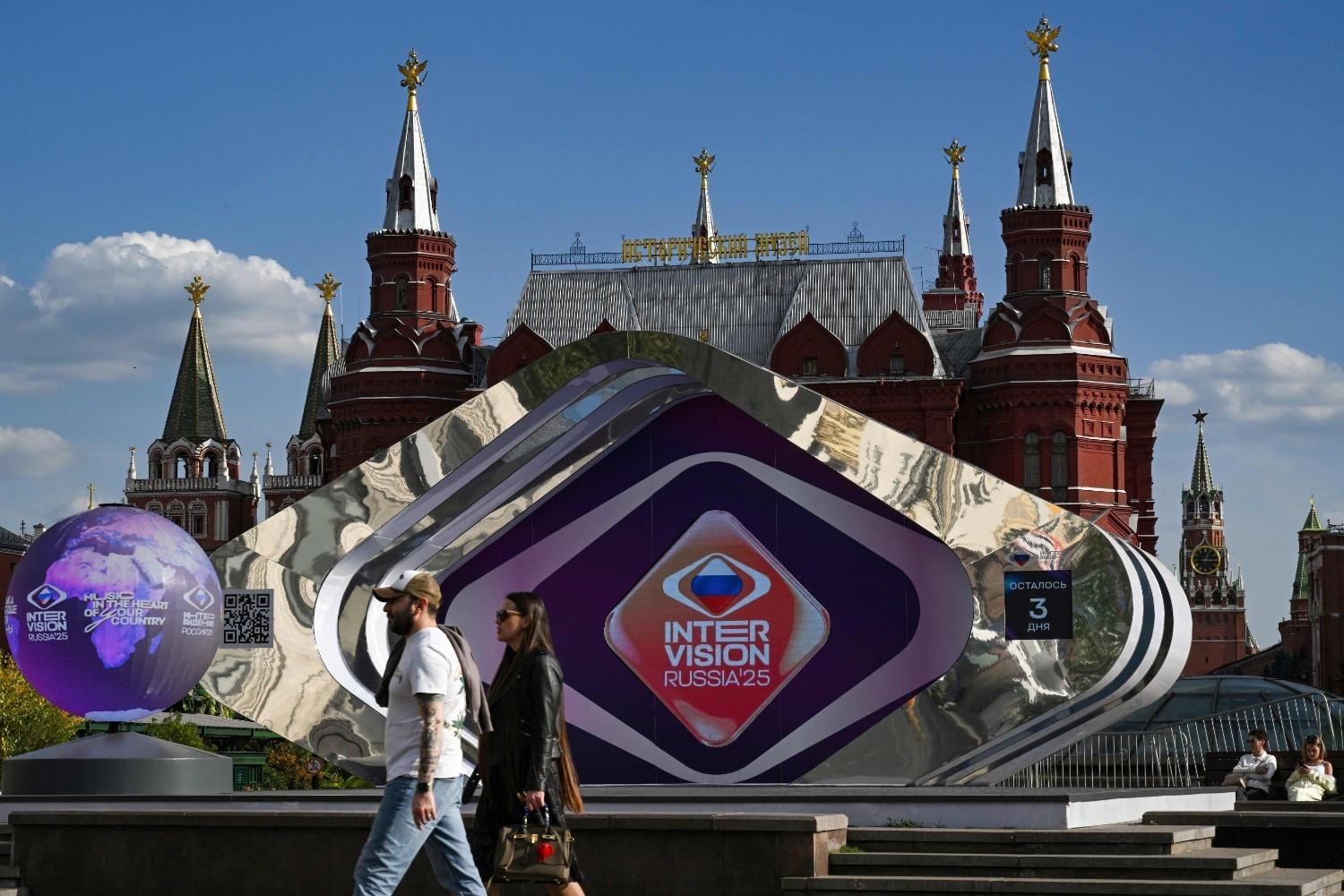
The Intervision Song Contest countdown clock sits on the central Manezhnaya Square outside the Kremlin in Moscow.
With artists from 23 countries, hopes for a billion-plus viewers and a generous sprinkle of glitter, Russia hosts Intervision on Sept. 20, a song contest championed by Moscow as a rival to Eurovision.
Originally a festival for the Soviet Union and its satellite states, Intervision is returning as a soft-power tool, heavy on anti-Western narratives with Moscow banished from Eurovision over its Ukraine offensive and striving for new cultural and political alliances.
Traditional allies Brazil, India and China, as well as former Soviet republics Uzbekistan and Kazakhstan are despatching artists to Moscow for the spectacle, which is being hyped with installations in central Moscow.
The United States is also set to be represented. Vasiliki Karagiorgos, known as Vassy, an Australian pop singer and songwriter will perform for the U.S.
Russian state television paid for an Intervision advert to be blared on a giant screen in New York's Times Square.
First organised in 1965 in Prague, the competition was suspended after the anti-Soviet uprising in Czechoslovakia three years later.
It was then revived in Poland in the 1970s and held across various cities of the former Communist bloc.
President Vladimir Putin first proposed rebooting the initiative in the 2000s.
The organizers have promised a "true celebration of music" during the show — but also one that promotes "national identity," echoing official Russian narratives.
Russian officials have for years been castigating what they decry as the "decadent" West, who slapped sanctions against Moscow over its offensive in Ukraine.
Despite being rebooted as a rival, Russian officials have touted Intervision as an antidote to Eurovision, having spent years railing against its pomp.
Hinting at the 2014 victory of Austrian drag queen Conchita Wurst, Foreign Minister Sergei Lavrov said he did not dispute "the right of the Eurovision jury and viewers to vote for a man with a beard, in a woman's dress."
"I guarantee that there will be no perversions or abuses of human nature," he said earlier this year.
President Vladimir Putin has held Russia up as a standard-bearer for "traditional values" in the face of what he considers the moral "decadence" of the West.
"Relaunching Intervision means countering Western entertainment and picking up the threads of a typical Cold War competition," French researcher Cyrille Bret told AFP.
Since being excluded from Eurovision, Russia has been seeking "platforms and channels of influence."
It "contributes to the reorientation of Russian influence from the West to the East, Eurasia, and the Global South," he added.
At the event on Sept. 20, near Moscow, each artist will sing in their mother tongue — "unlike Eurovision, where most songs are often sung in English," the organizers said.
They will include the likes of Qatari singer Dana Al Meer and Madagascan duo Denise & D-Lain.
Russia's Shaman will take to stage with his ballad titled, "Straight to the Heart."
No performers from an EU country will take part.
Moscow has high hopes for the competition's possible impact.
The participating countries represent "4.334 billion people — or more than half of the planet's population," Sergei Kiriyenko, a senior Kremlin official and chairman of the contest's supervisory board, said at a pre-competition press conference.
Another difference from Eurovision? No public vote. An international jury alone will decide the winner.